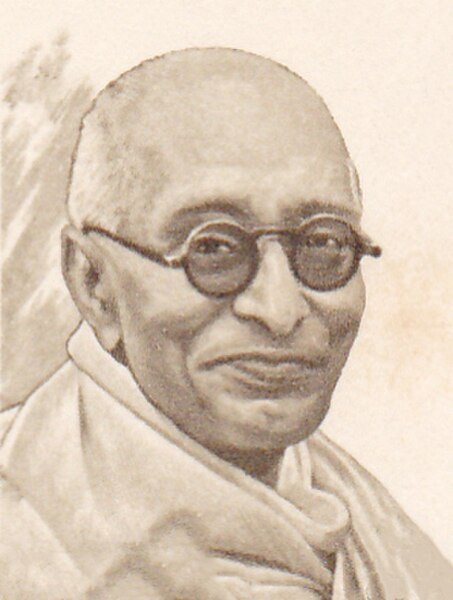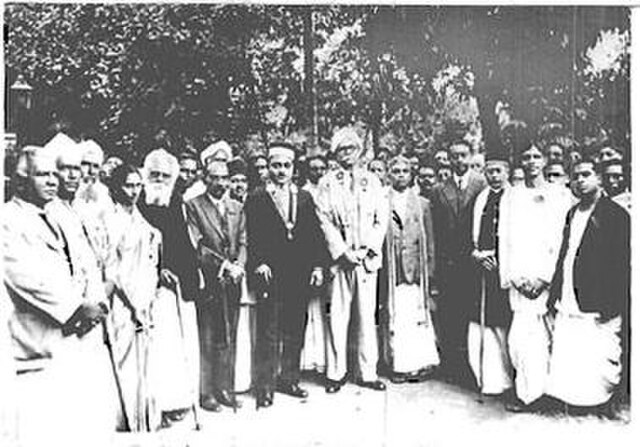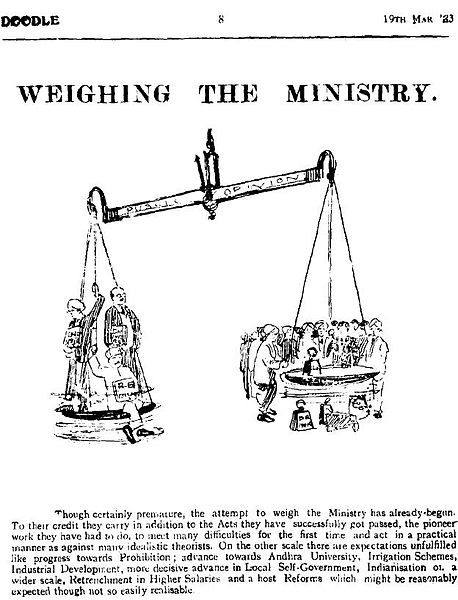1937 Madras Presidency Legislative Council election
The first legislative council election for the Madras Presidency after the establishment of a bicameral legislature by the Government of India Act of 1935 was held in February 1937. The Indian National Congress obtained a majority by winning 27 out of 46 seats in the Legislative Council for which the elections were held. This was the first electoral victory for the Congress in the presidency since elections were first conducted for the Council in 1920 and C. Rajagopalachari (Rajaji) became the Prime Minister. The Justice Party which had ruled the presidency for most of the previous 17 years was voted out of power. Congress also won the Legislative assembly election held simultaneously.
1937 Madras Presidency Legislative Council election
The Justice Party, officially the South Indian Liberal Federation, was a political party in the Madras Presidency of British India. It was established on 20 November 1916 in Victoria Public Hall in Madras by Dr C. Natesa Mudaliar and co-founded by T. M. Nair, P. Theagaraya Chetty and Alamelu Mangai Thayarammal as a result of a series of non-Brahmin conferences and meetings in the presidency. Communal division between Brahmins and non-Brahmins began in the presidency during the late-19th and early-20th century, mainly due to caste prejudices and disproportionate Brahminical representation in government jobs. The Justice Party's foundation marked the culmination of several efforts to establish an organisation to represent the non-Brahmins in Madras and is seen as the start of the Dravidian Movement.

Image taken in 1920s : Theagaroya Chetty is seated at the centre (to the immediate right of the girl). To his right is Arcot Ramaswamy Mudaliar. Also present are Raja of Panagal and Raja of Venkatagiri
The masthead of the English daily – Justice
Image taken in 1930s : (starting fifth from left after the woman) Periyar E. V. Ramasamy, C. Natesa Mudaliar, Raja of Bobbili and S. Kumaraswami Reddiar
A cartoon from 19 March 1923, evaluating the first Justice Ministry. It mentions Prohibition, Andhra University, irrigation schemes, industrial development and more local self-government among the unfulfilled expectations of the people.





